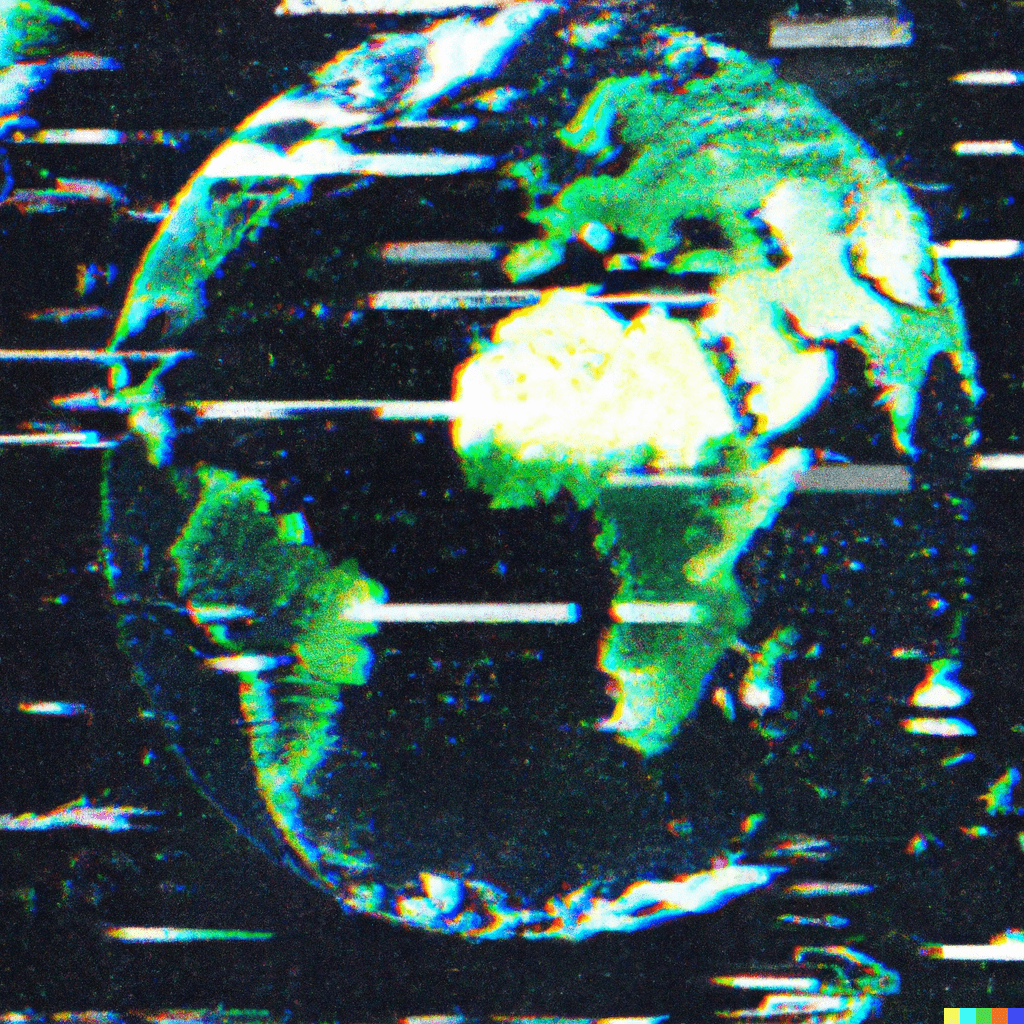Introduction
In the past millennium, mankind’s impulsive inquisitiveness paved the way for a preeminent era of technologically advanced civilization that has indubitably recast the days of dealing with mechanical tools to the adept system of a digitalised world. Phenomenal amounts of dedication is being put to fine-tune ways of processing information smarter and faster than ever. Some of the most eminent examples of current day technologies include Artificial Intelligence (AI), autonomous robotics, quantum computing and the progressive cybernetics.
The possibilities we have achieved are endless with cyberspace, which has been seen to yield great opportunities for economic progress, innovation, general development amongst ample aspects and access to miscellaneous information at large scales, however, it does not free itself from severe repercussions.
The report explores and examines the issues from global perspectives, and national perspectives being drawn from my home country Pakistan.
Surveillance and Cyber-Integrity
Modern convention allows for access to cyberspace easier than ever. 4.93 billion people use the internet worldwide, accounting for almost 63.2% of the global population (BroadbandSearch, n.d.). Continuously rising population on the internet puts more responsibilities on countries to pilot cyberspace. Governments put highly sophisticated technologies to moderate the flow of information internally and externally which gives a big leap towards aggregated surveillance on every individual with accurate and ample data to be organised, analysed and monitored in large quantities. States and intergovernmental organisations, notably the UN, FATF, OECD and more, get the opportunity for more transparency in dealing with matters that imperil countries’ sovereignties. Surveillance methods allow for strict supervision and prevention of imminent hostility from non-state actors, usually taking the form of cyber attacks or cyber-assisted incursions.
Social media has gained a notoriety for particularly influencing conflicts like: incitement to violence; the spread of misinformation, disinformation, hate speech, radicalisation, and propaganda; recruitment into armed groups; and suppressing dissents. Standing as major concerns, as stated in the United Nations’ peacekeeping operations (United Nations, 2021).
Particularly, it has been instrumental in political polarisation (De-Wit et al., 2019). As Greater Good speaks, social media being central to limitless amounts of information, just speaks out for inconsideration among people, having to support their own biases and views and allowing them with the ease of communication to express their biases and attack dissents. Though the article is only restricted to the United States, in my opinion it does essentially have the same effects in other demographics.
A more thorough study by Cambridge University Press suggests social media being a salient factor for rebellious groups to incite violence against governments and civilians, even whilst being at a material disadvantage, they can call for foreign support through the internet. Benefits for such rebellious groups being able to spread their agenda in emotionally-convincing ways offers a path to coup and sparking civil wars (Jones et al., 2017).
The ease of access to the internet has also amplified terrorist organisations’ propagandas, radicalisation and recruitments, reaching a larger audience with little effort whilst effectively being able to target more specific demographics meeting their agendas (CIBRA, 2017).
Facebook and Twitter are some of the biggest social media platforms. The large number of people makes it an ideal place for rebellious and extremist groups to proliferate their propaganda. With aims of national security and peace, governments and intergovernmental organisations have been proactively fighting the threat with great diligence. Governments’ control on the internet allows them to surveil and control internet use by people to suppress rebels and terrorist groups in order to enhance national security (United Nations, 2021).
The use of autonomous robots is rather topical in the surveillance by governments and militaries. Exemplary use of Unmanned Aerial Vehicles (UAVs) which allows for close proximity surveillance and coordinated attacks on hot zones and other sensitive places where human lives can be endangered, making autonomous alternatives more pleasing. Infact, for Pakistan, UAVs were instrumental in surveilling and attacking terrorist organisations during the anti-terrorist operations launched by Pakistan due to the surge of terrorism around the early 2000s up until the 2010s to counter terrorists and sabotage critical support of the groups (Javed, 2021). Unfortunately, Pakistan has also suffered from UAVs by CIA drone strikes in anti-terrorism operations, causing deaths of innocent in the process, which raises human right violations (United Nations, 2021).
Almost 89% of social media use in Pakistan is dominated by Facebook (Statcounter, n.d.), being indebted to the exploitations of social media by local terrorist organisations. Pakistan has taken measures on controlling the use of social media by Pakistanis to maintain safety and security from potential terrorism, extremism and fake news. Pakistani officials reported 14,296 URLs to Facebook in the first half of 2019, 12,000 were removed which halved under Facebook’s violations and Pakistan’s laws (Chabba, 2020).
Although surveillance is particularly important for maintaining peace, its use has been misconducted, concerning the privacies of people and human rights. Freedom house propagates against mass surveillance by governments, and states, governments expand cyber-surveillance as justifications for diplomatic purposes, to instead give more control over its people, the information of people can be used to observe, collect and analyse to suppress dissents. Examples of such propagations of surveillance are carried out by China, who has heavily controlled the flow of information in the country. This raised red flags for the freedom of expression in China against the communist regime and also suppressing the human rights violations against Uyghur muslims (Freedom House, 2019). Other controversies are also by an Israeli tech-company, the NSO group, known for its spyware ‘Pegasus’, which is licensed to governments around the world, is capable of hacking any and all devices, aiding in mass information harvesting and surveillance (Pegg & Cutler, 2021), the capability has been misused to pry information about journalists (Willsher, 2021). Though Freedom House believes states should move away from aggressive surveillancing, although its aims are opinionated strictly to human rights, it potentially and ironically brings back the issue first attempted to solve; security.
Prospectively, with the efforts to collect data at such extremes, states might move to mass surveilled measures, where wrong enforcements can lead to woeful outcomes; restricting freedom of expressions against dissents, and becoming a tool for sabotaging rivals which perils peace among international borders. Mass surveillance is better than not having surveillance at all. Following the UN’s guidance, in favour of human rights of people, states must abide strictly to respect privacy of people (United Nations, 2014).
Hybrid wars
The 21st century has witnessed a revolution in war, entering the digitised generation of modern warfare. Mankind’s instinctive thirst for dominance leads to exploitations of the best available at hand, most fruitful for contrivance; the weaponisation of new technologies; the race to have the best over the dissent factions; having an edge over the opposing faction through means which make previous warfare tactics ersatz. Modern war evolved to be multifarious, aggregating tactics of military, media, propaganda, intelligence services, ambiguity, sponsored terrorism, insurgencies and rebellious activities (Qureshi, 2020).
An article from the Portuguese army, by Captain Nunes, talks about how modern warfare is an information based warfare, consisting of newer tactics for wars, mostly piloted through cyberspace. Cyberwar is an immensely large concept which plays a crucial role in hybrid wars, tactics used are all electronic, causing instability of rival countries’ securities through various forms such as hacking and information jamming. Other threatening tactics which have gained the most relevance in modern warfare is psychological warfare, through governing the internet, misinformation and deception is used to fight without direct contact (Nunes, 1999). The article gives us a thorough view on the issue, especially a view coming from an army personnel.
Operation Olympic games or the Stuxnet attack was a game changer for cyber operations. The Stuxnet was a self-replicating cyber worm that attacked the Iranian nuclear centrifuge facilities in the county of Natanz. The worm had two key functions, one being the monitoring and collections of data on Iran’s nuclear capability and the other directly attacking the centrifuge control systems, forcing them to excessively speed up, eventually leading to 1,000 centrifuges being destroyed. This reduced 10% of Iran’s nuclear development (Galligan, 2018). Though no country has taken responsibility, it is suspected that Israel and the US were involved as an attempt to destabilise Iran’s nuclear programme. The National Interest directly blames Israel for being responsible for the attacks, as Israel, in 2007 launched ‘Operation Orchard' which was a similar attack on Syria’s nuclear sites before moving over to Iran. Since 2004, Israeli Intelligence has been attempting to prevent Iran from obtaining nuclear weapons and since 2007 it has assassinated 5 Iranian nuclear scientists (Fassihi, 2021). However, Iran had already suspected the attack and effectively disconnected the computers link to the reactors from cyberspace, reducing the severity of the attack and managing to contain the worm (Leong, 2021). Knowing that Iran, and Israel and the US are rivals, this attack evinces the importance of geopolitics in use of cyber-warfare. In 2020, Israel successfully assassinated Iran’s top nuclear scientist Mohsen Fakhrizadeh. The assassination was well orchestrated with the help of AI and a remote-controlled machine (Fassihi, 2021).
A research paper by the Pakistan Languages and Humanities Review organisation (PLHR) gives a thorough discussion about cyber warfare for Pakistan and its impact on the region. Given that cyberspace has ample benefits to offer for warfare purposes, Pakistan is still behind its closest rival, India, in IT resources. India oppositely is profusely working on its IT department, and on its way to becoming a technology hub. The Indo-Pak relations are one of the most sensitive in the world, both being nuclear capable countries, cyberwars are an exceptional tactic for both countries, any tension at the borders heavily influences the cyberwars between the two countries, and vice versa (Mustafa, 2020). Pakistan has also suffered from India’s hybrid war tactics: heaps of misinformation and destabilising Pakistan through state-sponsored terrorist attacks and covert military operations (Aqdas & Shah, 2021).
Diplomacy is key for tackling hybrid wars. Essentially, hybrid wars are a cause of conflicting agendas between factions. Governments’ tactics evolved to exploit the cyberspace, media, non-state actors and sponsored militia groups against rivals, causing nothing but a series of hostility by dissent factions. Governments should work on diplomatic ties and settle with peace talks as only resort to maximise the likelihood of trust between nations. For this, a major factor, being the social factor, needs to be taken over as well, since dissension between the population is a rudimentary cause of diplomatic ties risked between governments. Failure to emphasise on the prospective severity of hybrid wars to governments and its people, it may very well be worse than a traditional head on war.
Conclusion
Technology being one of mankind’s greatest achievements which has remarkably reshaped the very fabric of society we live in, it nonetheless has its adverse effect caused due to its weaponisation and its use in mass surveillance, inevitably reknitting warfare itself. ave made.
The fertility of cyberized critical infrastructures of governmental states against weaponised technologies, and the capability to exploit the cyberspace, media, non-state actors into states’ interests, cultivates violence and relentlessly imperils peace among all borders. I believe the offensive nature of countries must be desensitised and maximise resolving conflicts with peace talks to ensure the anticipated ‘perfect’ society is not fictitious.
Bibliography
- India's Hybrid Warfare against Pakistan - Aqdas, T., & Shah, A. (2021, April 29). Strafasia.
- Pakistan's new internet laws tighten control over social media - Chabba, S. (2020, February 24). DW.
- Social Media and Terrorist Organizations: Observing Success of Recruitment Through Social Media - CIBRA, V. (2017). ucf stars.
- Are Social Media Driving Political Polarization? - De-Wit, L., Linden, S. v. d., & Brick, C. (2019, January 16). Greater Good Science Center.
- The Scientist and the A.I.-Assisted, Remote-Control Killing Machine - Fassihi, F. (2021, October 26). The New York Times.
- Social Media Surveillance - Freedom House. (2019).
- The Cyber Vector Of War: State Sponsored Hacking Attacks And The Rise Of The Digital Mercenary - Galligan, J. (2018, November 27). Society & Space.
- Afghanistan: Could Pakistani drones hit the Panjshir Valley? - Javed, F. (2021, September 8). BBC.
- A Manifesto, in 140 Characters or Fewer: Social Media as a Tool of Rebel Diplomacy - Jones, B. T., Mattiacci, E., & Cambridge University Press. (2017, April 17).
- These Olympic Games Launched a New Era of Cyber Sabotage - Leong, A. (2021, July 25). The National Interest.
- Cyber Warfare Between Pakistan and India: Implications for the Region - Mustafa, G. (2020, June). PLHR.
- Key Internet Statistics to Know in 2022 (Including Mobile) - No Author. (n.d.). BroadbandSearch.
- Social Media Stats Pakistan - No Author. (n.d.). Statcounter Global Stats.
- The Impact of New Technologies in the Military Arena: Information Warfare - Nunes, P. F. V. (1999, September 13-16). Air University.
- Report of the Office of the United Nations High Commissioner for Human Rights. The right to privacy in the digital age - United Nations. (2014, June 30).
- Digital Technologies, Peace and Security: Challenges and Opportunities for United Nations Peace Operations - United Nations. (2021, August 25).
- What is Pegasus spyware and how does it hack phones? - Pegg, D., & Cutler, S. (2021, July 18). The Guardian.
- The Rise of Hybrid Warfare - Qureshi, W. A. (2020, February 6). NDLScholarship.
- Pegasus spyware found on journalists' phones, French intelligence confirms - Willsher, K. (2021, August 2). The Guardian.








